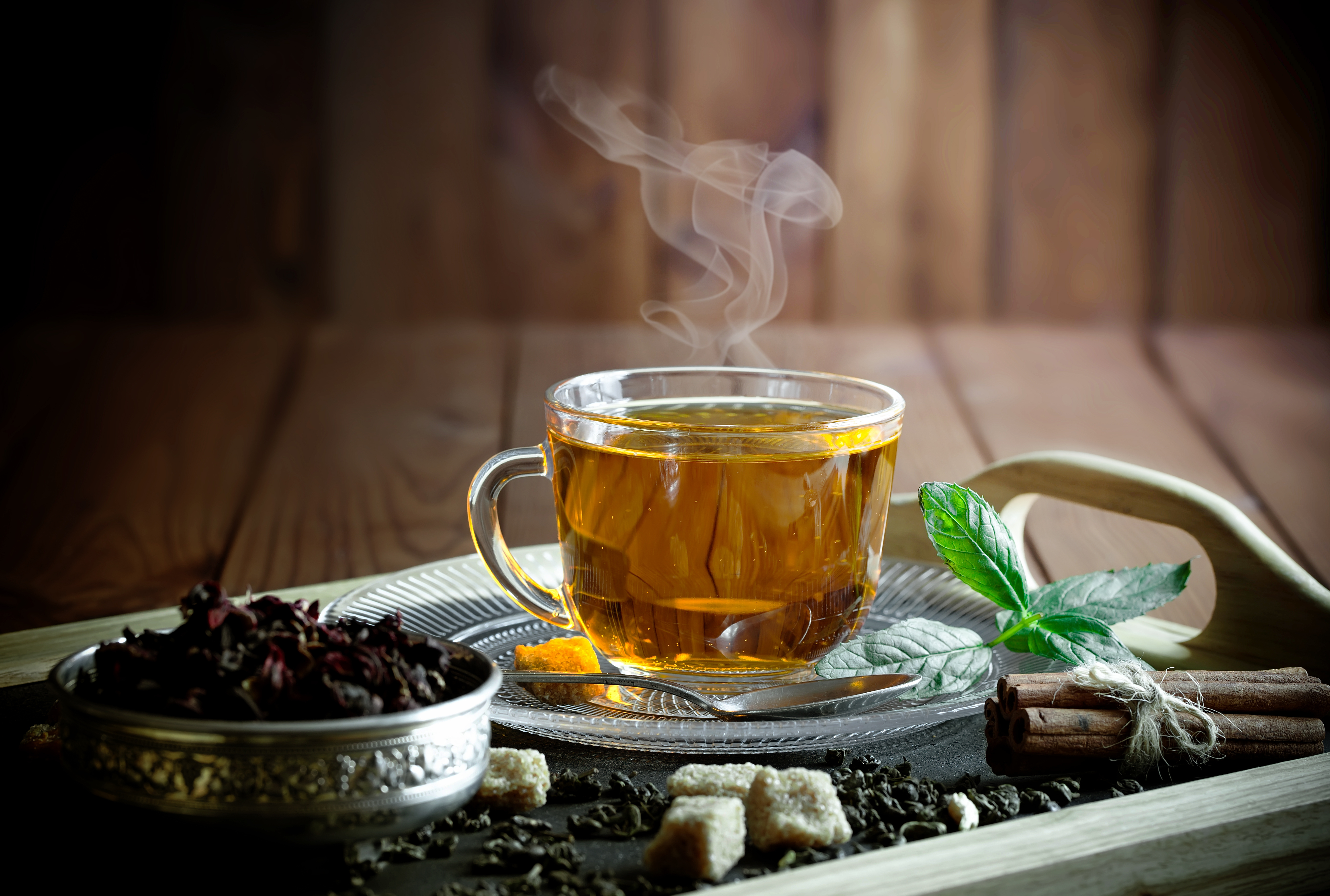Is there health benefits to drinking Darjeeling tea?
If you've enjoyed afternoon tea in any hotel or tea shop, then you've probably already had Darjeeling tea without realising it. If you aren't familiar with this distinctive tea, then read on to find out where it's grown and more about its potential health benefits.
What is Darjeeling tea, and where is it grown?
Darjeeling tea is light-coloured and delicate with a mild floral aroma, that is unique among black teas. It's often referred to as the "Champagne of teas" thanks to its distinctive, high-quality flavour.
It takes its name from the Darjeeling region of West Bengal, India, where the Chinese variety of the tea-plant, Camellia Sinensis, grows.
This species of the plant is suited to cooler climates and high altitudes, and it can grow up to 5 meters on the upper slopes of Darjeeling.
It produces four 'flushes' of tea leaves from March to November – a flush begins when the tea plant grows its leaves and ends when the leaves have been harvested. Each flush produces a tea that has its own taste, colour, and aroma.
How to make Darjeeling loose tea
Darjeeling tea is best enjoyed mid-morning or early afternoon. We recommend that you avoid it in the late afternoon/early evening because of its caffeine content.
It takes just four-simple steps to make the perfect cup of loose-leaf tea.
- Start with freshly boiled water and warm your mug or teapot
- Add the tea leaves to your favourite infuser (one heaped teaspoon per cup).
- Steep (or brew) the tea leaves for around two to three minutes.
- Remove the tea leaves and enjoy drinking your Darjeeling tea.
It's popular to drink this type of tea without milk, sugar, or lemon, but this is down to personal preference, and you can decide for yourself what tastes better.
Read more on how to make the perfect cup of loose leaf tea with tips from the experts at Pumphrey's Coffee.
Darjeeling tea benefits - what you need to know
Darjeeling tea contains some caffeine but less than you might find in coffee. So, you can expect to benefit from a boost when you're feeling tired without the side effects that come from drinking too much coffee.
An average 8 fluid oz. cup of Darjeeling tea contains around 50mg of caffeine.
It's full of the same antioxidants found in green tea, that help fight the effects of free radicals and prevent damage to the cells in your body.
Other health benefits of Darjeeling tea:
- weight loss – unsweetened black tea is a low-calorie alternative to other types of drink and may support weight loss
- calming effect – studies have shown that the aroma of Darjeeling tea can help you relax in stressful situations
- neuroprotective – Darjeeling is high in naturally-occurring tannins, which could protect the brain and nervous system
There's no doubt that stepping back and taking the time to brew a cup of tea can have the effect of a self-imposed time-out while you wait for it to steep. Taking a short break from what you're doing to enjoy a hot drink is a great way to reset.
Where to buy loose leaf Darjeeling tea
Loose-leaf Darjeeling tea is available to buy from most specialist tea purveyors and shops, like Pumphrey's Coffee. We've been selling tea for hundreds of years in the Newcastle area, and the rest of the world can now enjoy our loose-leaf tea when they buy online.
We also sell Darjeeling tea bags from Newby, along with Assam tea, Earl Grey, Ceylon, and other green, white, and herbal teas.
If your tea is exposed to the air for a long time, it will lose its aroma. You should store it in an airtight container away from direct sunlight, heat, and strong odours.
You can buy Darjeeling loose leaf tea from Pumphrey's Coffee in different sized bags or you can subscribe to get a regular delivery of tea. With a subscription, you don't have to remember to buy your tea, so you'll never run out again.
The bottom line - Darjeeling tea
While there could be some health benefits to drinking Darjeeling tea, it's the distinctive taste that makes it so popular with tea drinkers.
The tea leaves from the Darjeeling district are some of the finest in the world, and its expert harvesting and processing only serve to improve it. We think Darjeeling tea lives up to its name as the "Champagne of teas", and we're sure you'll agree.

 Pound Sterling
Pound Sterling
